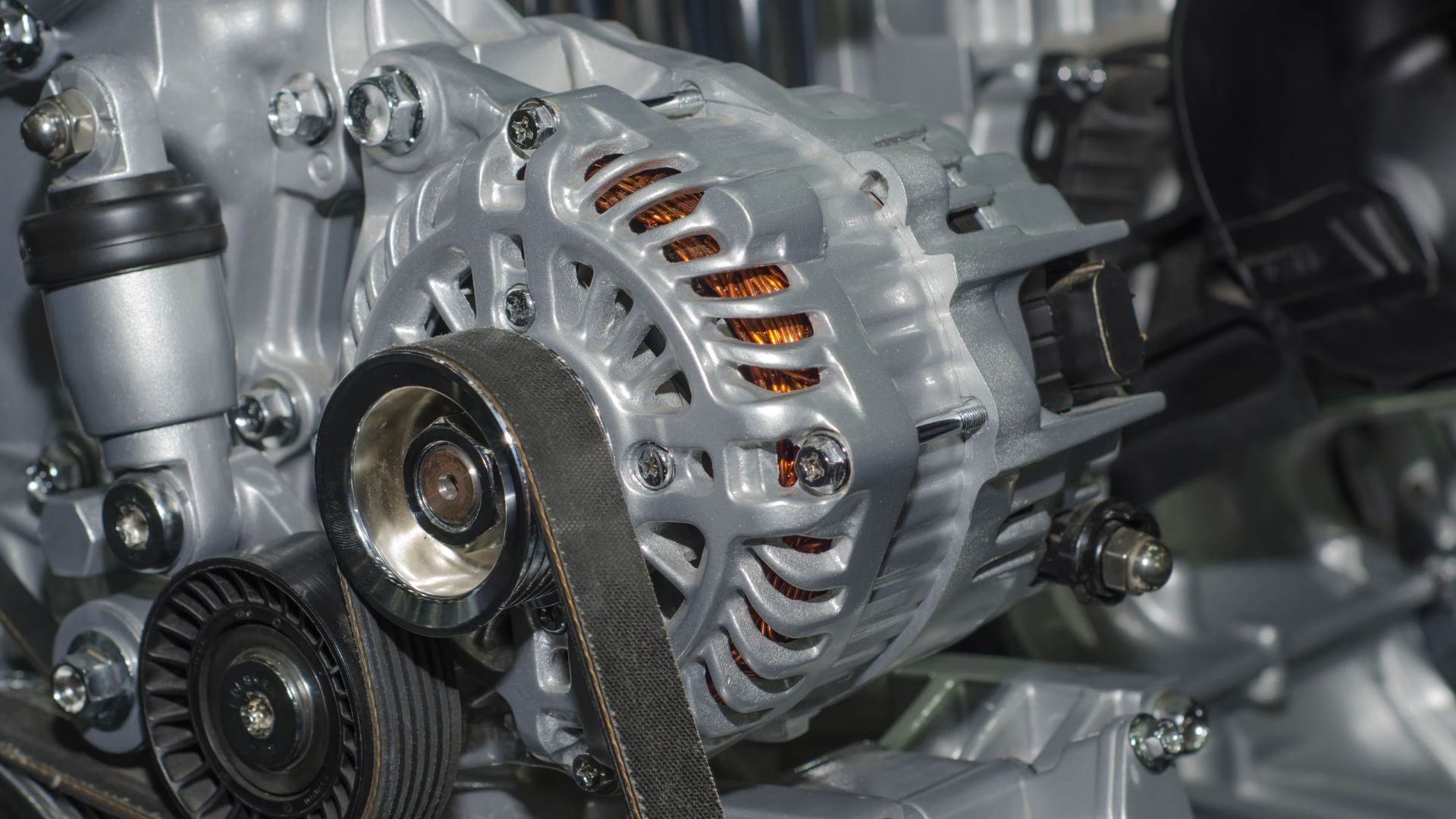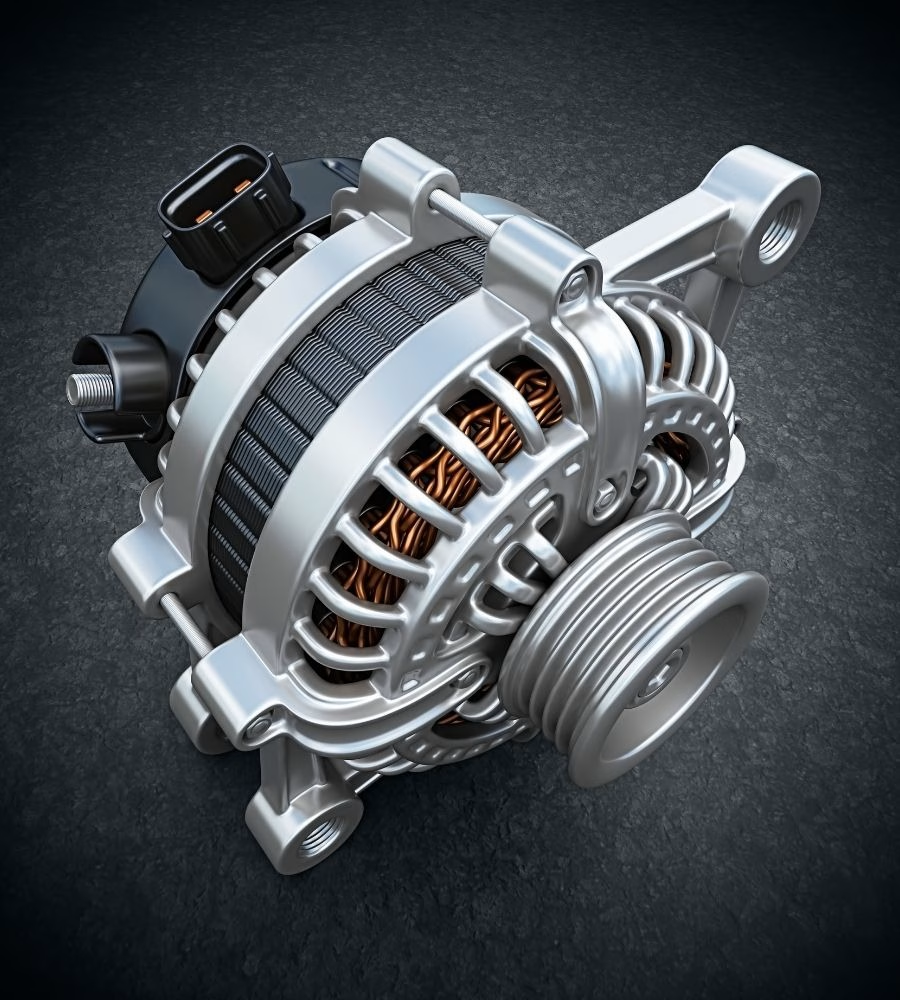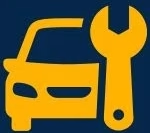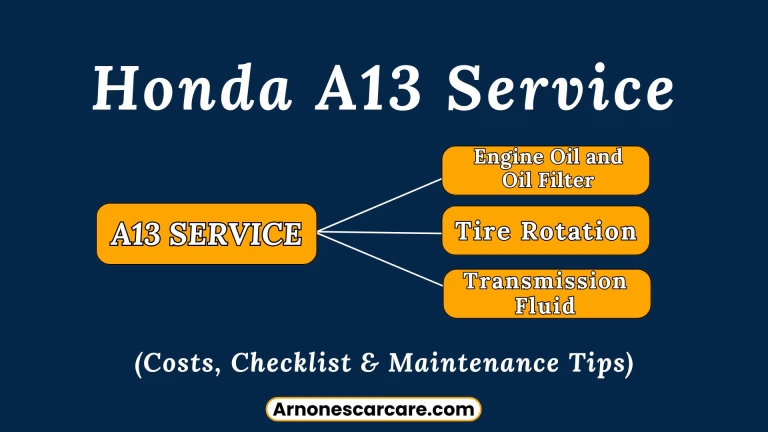
When customers visit Arnone’s Car Care, one of the most common questions they ask me is about the role of the alternator. Many drivers don’t realize just how critical this component is to their vehicle’s performance.
With over 50 years of experience servicing cars in Kansas City, I’ve seen firsthand how a failing alternator can take a reliable vehicle and turn it into a serious problem.
The alternator is responsible for keeping essential electrical systems running, recharging the battery, and supporting your car’s overall health. Addressing alternator issues early can prevent costly repairs, much like addressing engine stalling or other performance concerns immediately.
Powering Your Vehicle’s Heart
The alternator operates as your vehicle’s power plant. While the battery starts the car, it’s the alternator that takes over to keep everything running. It converts mechanical energy from the engine into electrical energy. This process is carried out using a system of components, including the rotor, stator, and diodes.
Together, they produce alternating current (AC), which is then converted to direct current (DC) to power the car’s electrical systems ranging from the headlights to the AC.
I often tell my customers to think of the alternator as a continuous charging station for the battery. Without it, the battery would drain rapidly, leaving essential systems powerless. For example, at Arnone’s, I recently serviced a sedan whose alternator failed.
The customer reported dimming headlights and a dashboard warning light. Upon inspection, I noticed the alternator had stopped charging the battery altogether, which could’ve left them stranded in no time. A failure like this can even resemble issues caused by dirty air filters in its early warning signs.
Key Components and Their Roles
One of the fascinating aspects of alternators is the interplay between their components. The stator in the alternator is a coil of wires where the electrical energy is generated. Without it, the mechanical energy from the engine would not be converted into electricity.
Another crucial part is the alternator regulator, which ensures the voltage supplied to the battery and electrical systems remains steady. This regulation is critical because spikes in voltage can damage sensitive electronics like your car’s infotainment systems or even lead to issues akin to engine oil problems.
Why the Alternator is Important?
An alternator is not merely a convenience; it is essential for the functioning of every modern vehicle. It supports critical safety features such as airbags, power steering, and the anti-lock braking system (ABS). Beyond safety, it powers the comforts of your vehicle, like the climate control and your audio system.

From our decades of experience, I can confidently say the alternator also plays a significant role in maintaining the health of your battery. A failing alternator often leads to repeated battery replacements. For instance, a customer once came to us frustrated after replacing their car’s battery three times in one year. The underlying issue? A worn alternator that wasn’t supplying adequate charge.
Common Customer Concerns About the Alternator
Many people wonder whether it’s the battery or the alternator that supplies the current once the engine is running. Based on a discussion I came across on a Quora forum, this is a frequent source of confusion. The answer is simple: when your vehicle is operational, the alternator shoulders the primary responsibility of powering various systems and recharging the battery.
Another common concern I’ve encountered, both in my shop and in online discussions, is what happens if the alternator stops working. If your alternator fails, your vehicle will initially rely on the battery alone. However, with no way to recharge itself, the battery will eventually deplete. At this point, the car will lose all electrical power, causing a complete shutdown. This situation might even be mistaken for a symptom of engine stalling, causing further confusion.
Warning Signs and Maintenance
From my experience, catching alternator issues early can save you from a costly breakdown. Here are some signs I always tell my customers to watch for:
- Dimming or flickering headlights.
- A whining or grinding noise from the engine bay.
- Dashboard warning lights, especially the battery symbol.
- Trouble starting the car or frequent stalling.
At Arnone’s, diagnosing alternator problems often involves modern diagnostic tools to assess voltage levels and system health. For vehicles that have exceeded 100,000 miles, I generally recommend keeping a close eye on the alternator, as wear and tear become more likely.
The Alternator’s Impact on Other Systems
One of the aspects that surprise customers most is how the alternator impacts fuel efficiency. A poorly functioning alternator can cause the engine to work harder, indirectly increasing fuel consumption. Not to mention, keeping the alternator in good condition can extend the life of your battery significantly.
I’ve seen many vehicles with alternators that have lasted upwards of 150,000 miles, provided they’ve received timely maintenance. Taking steps to avoid wear, similar to how you might prevent the need for a full engine rebuild, will help your car run smoothly.
My Advice to Car Owners
When it comes to alternators, I always emphasize proactive care. Replacing a failing alternator is far more cost-effective than facing repeated battery replacements or getting stranded on the roadside. At Arnone’s, we pride ourselves on combining decades of experience with cutting-edge tools to ensure every vehicle gets the attention it deserves.
If you’ve noticed signs of alternator trouble or if your vehicle has racked up over 100,000 miles, don’t hesitate to bring it in for an inspection. The alternator might not be the most talked-about component of your car, but its role in keeping your vehicle safe, efficient, and comfortable is absolutely vital. After all, when a vehicle leaves my shop running smoothly, I consider it a win not just for the car, but for the trust my customers place in me.
Taking care of your alternator means taking care of the heartbeat of your car.
Visit for Expert Engine Care
If your engine is acting up or just needs a little extra attention, visit Arnone’s Car Care in Kansas City. Our expert team is here to diagnose and resolve any issues by provideing expert services with care and precision. Whether it’s a minor fix or a more complex repair, your vehicle is in trusted hands. Stop by today or call us at (816) 471-8560 to schedule an appointment and get your engine performing at its best.






